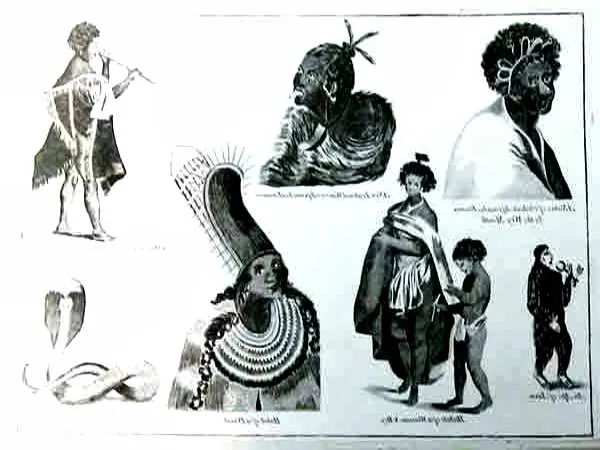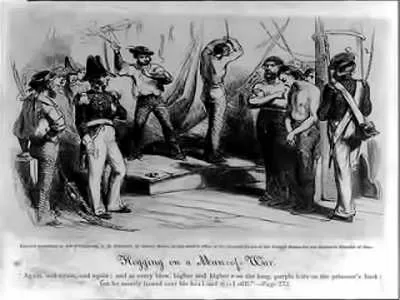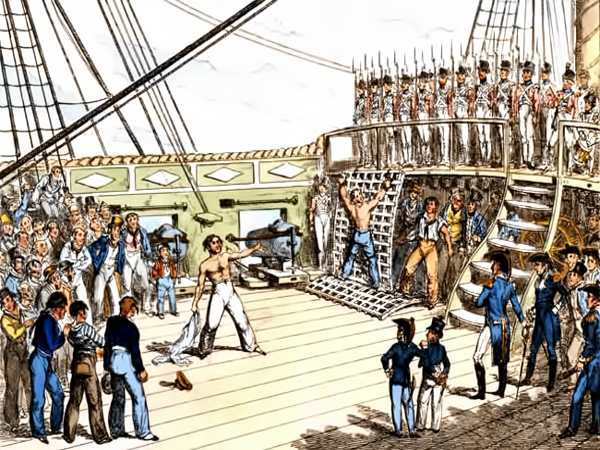Fletcher Christian, born in 1764 near Cockermouth, Cumberland, embarked on a journey that would ultimately lead to one of the most infamous events in naval history—the mutiny on HMS Bounty.
Orphaned at a young age after the death of his father, Fletcher and his family were burdened by financial difficulties. His mother, Ann, moved the family to the Isle of Man, where Fletcher spent his formative years. Interestingly, this island would later connect his fate with that of Captain William Bligh, a pivotal figure in Christian’s life.
Early Life and Connection with Captain Bligh
Christian first went to sea in 1783, and by 1787, he had already served under William Bligh on two voyages to the West Indies. Bligh, who was impressed by Christian’s potential, became something of a mentor to him. When Bligh was given command of HMS Bounty, he recommended Christian for the position of midshipman, thrusting him into a role that would forever alter his destiny.

Life on Tahiti: A Paradise with Perils
The Bounty’s mission was to transport breadfruit plants from Tahiti to the West Indies, where they would be used as a cheap food source for enslaved workers. Upon arriving in Tahiti, Christian and his crewmates were captivated by the island’s abundant resources, warm climate, and the welcoming nature of the Tahitian people. The sailors quickly embraced Tahitian culture, with many, including Christian, adopting the local custom of tattooing their bodies. The allure of Tahiti made life aboard the Bounty seem harsh by comparison, setting the stage for rising tensions.
Rising Tensions and Bligh’s Harsh Leadership
Despite the idyllic surroundings, life on Tahiti was not without its challenges. Petty thefts by the Tahitians became a source of friction, as Bligh held his men financially responsible for any losses. Punishments were swift and severe. Able seaman Alexander Smith was flogged after a crucial piece of equipment was stolen on his watch, much to the dismay of the Tahitians, who found the punishment barbaric. The Bounty’s cook’s assistant and butcher were also subjected to lashes for neglect of duty when their tools were stolen.

As the monsoon season set in, the Bounty was battered by storms, endangering the precious breadfruit plants and the ship itself. Bligh’s temper flared when mistakes were made, such as when the Master, John Fryer, briefly ran the ship aground during a storm on Christmas Day, 1788. The crew’s morale deteriorated further when three men deserted, stealing a launch and weapons. Though Bligh managed to recapture the deserters, his harsh punishments only deepened the crew’s resentment.
The Final Straw: Mutiny Brews
Bligh’s authoritarian leadership style, though not uncommon for the time, was increasingly viewed as tyrannical by the crew. Even as he doled out punishments, Bligh believed he was being lenient—deserters in that era often faced 100 to 150 lashes, and officers who failed in their duties could face execution. However, Bligh merely disrated the officer responsible for the desertion, and the mutineers were given 12 to 24 lashes, far less than the customary penalty.
The final blow came on February 4, 1789, when the Bounty’s bower anchor cable was cut—an act of sabotage by the taio (a protective friend) of Midshipman Hayward, who feared his friend would be lashed. Bligh’s increasing paranoia and the crew’s growing discontent set the stage for the infamous mutiny.
The Mutiny and Its Aftermath
On April 28, 1789, as the Bounty sailed away from Tahiti, Christian led a mutiny against Bligh, seizing control of the ship. Bligh and 18 loyalists were cast adrift in a small launch, while Christian and his followers sailed back to Tahiti and eventually to Pitcairn Island, where they sought refuge from British justice.
The mutiny on the Bounty remains one of the most well-known maritime rebellions in history, with Fletcher Christian’s name forever linked to this dramatic chapter in naval lore.

